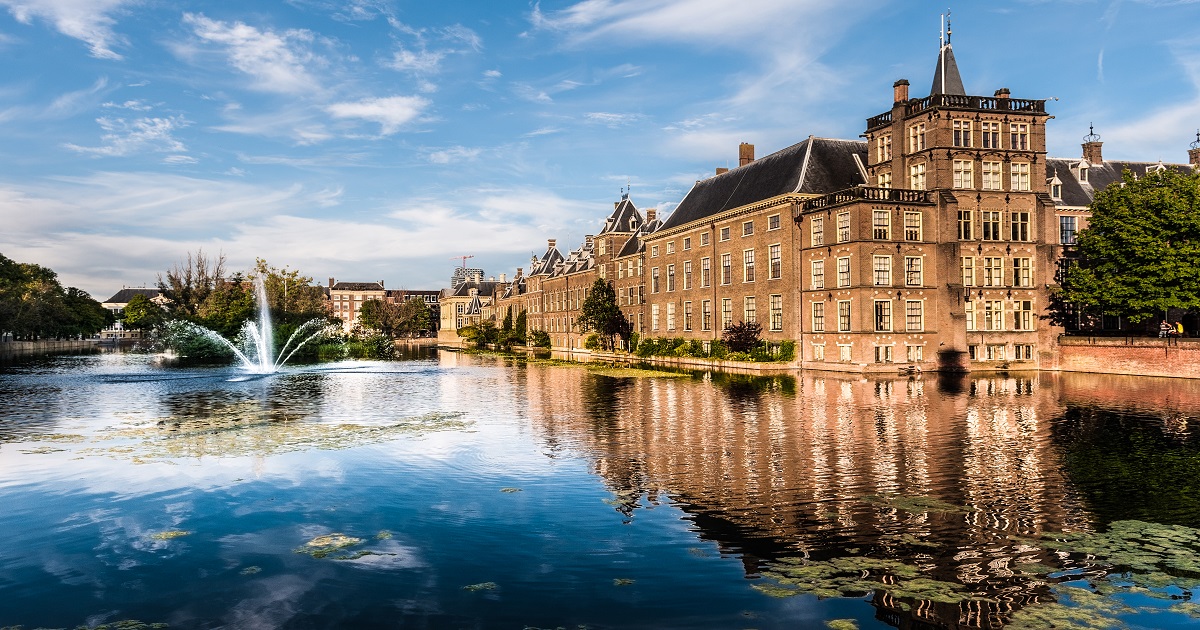Learn how to speak like the people in Den Haag
After the positive reactions to my blog about different cities and accents I decided to continue the series. In my earlier blog I talked about the dialects of Rotterdam and Utrecht.
Today I want to tell you about the language of: Den Haag, also called ‘s-Gravenhage.
But first, what kind of city is Den Haag?
Den Haag (‘s Gravenhage / The Hague / La Haye)
Besides Amsterdam and Rotterdam, it’s probably a city you have also heard of.
First: its name.
Normally people talk about Den Haag, but there is also another name for the city. A name way more formal and difficult to pronounce: ‘s-Gravenhage.
People in the Netherlands think that this is the old and official name. But that’s not correct. The shorter and easier form is considered the original one. ‘s-Gravenhage you will only see in official documents, but you can just use Den Haag.
In other languages the name is The Hague (English) and La Haye (French).
Den Haag has a long and interesting history. Through the centuries the city played an important role in the Dutch history of economics, arts and especially politics. You might know that nowadays Den Haag is the political centre, not only of the Netherlands but also internationally. Den Haag has several international judicial institutions, like the International Criminal Court and the International Court of Justice.
So what kind of city is Den Haag?
Good question.
It is a very diverse city. It’s a place for the international political elite. On the other hand, there are large areas of working-class people. There are also a lot of different cultural influences. Walking through the city you can see these, combined with buildings and architecture from the last centuries and modern architecture.
Talking about Den Haag, its language is something that has to be mentioned. The local accent spoken in Den Haag is nowadays one of the most well known in the Netherlands and Hagenaars or Hagenezen are really proud of it.
Learn Haags: What is the typical dialect / accent from Den Haag
In contrast to the accents of Rotterdam or Utrecht, the dialect of Den Haag can be quite difficult to understand. And this is strange because the grammar and sentences hardly differ from standard Dutch.
The difficulty lies mainly in the way people pronounce words and in particular, sounds.
It is difficult to explain each part of this dialect. And not least because it is really a spoken dialect. If Dutch people read words that are written in Haags, they have to read it out loud and then they probably won’t understand 50 percent of it.
And they like to mix it up with a lot of swear words and diseases. Something Dutch, and specifically Haagse people are known for.
Learn Dutch: Den Haag
So let me just give you a couple of examples of different sounds in Haags.
The sound of [au / ou] turns into [âh]. This means that
- ‘Ik hou van jou’ (I love you) turns into,
- ‘I hâh van jâh’.
The âh sound is also heard for auw / ouw. For example
- gebouw (building) becomes gebâh.
A really famous change of sound and really typical for Haags is the [–er] at the end of a word becomes [âh].
- Lekker (delicious/good) is lekkâh.
And the [-en] at the end of a word becomes [uh].
- So: lopen (walking) is pronounced lopuh.
These are just some examples of changing sounds in the pronunciation of people talking in the real Den Haagse dialect. Fortunately for you, people speaking with this accent are perfectly capable of speaking more standard Dutch. And this dialect can really affect spoken communication. If you say that you are learning Dutch and you ask nicely if the person can speak a bit slower, he will be happy to do it.
Typical Den Haag quotes
So what expressions can you expect to hear when you move to or visit Den Haag?
- Oh oh Den Haag mooie stad achter de duinen (Oh oh Den Haag, beautiful city behind the dunes
This is the opening line of the unofficial song about Den Haag.
- Ut zal mèn amme reit roestuh.
This literally means ‘this will corrode my butt…’. It means, I don’t care.
And the last one, you might hear is that for a cup of coffee you might hear,
- bakkie pleur

Bart de Pau
online Dutch teacher & founder of the Dutch Summer School & Dutch Winter School



